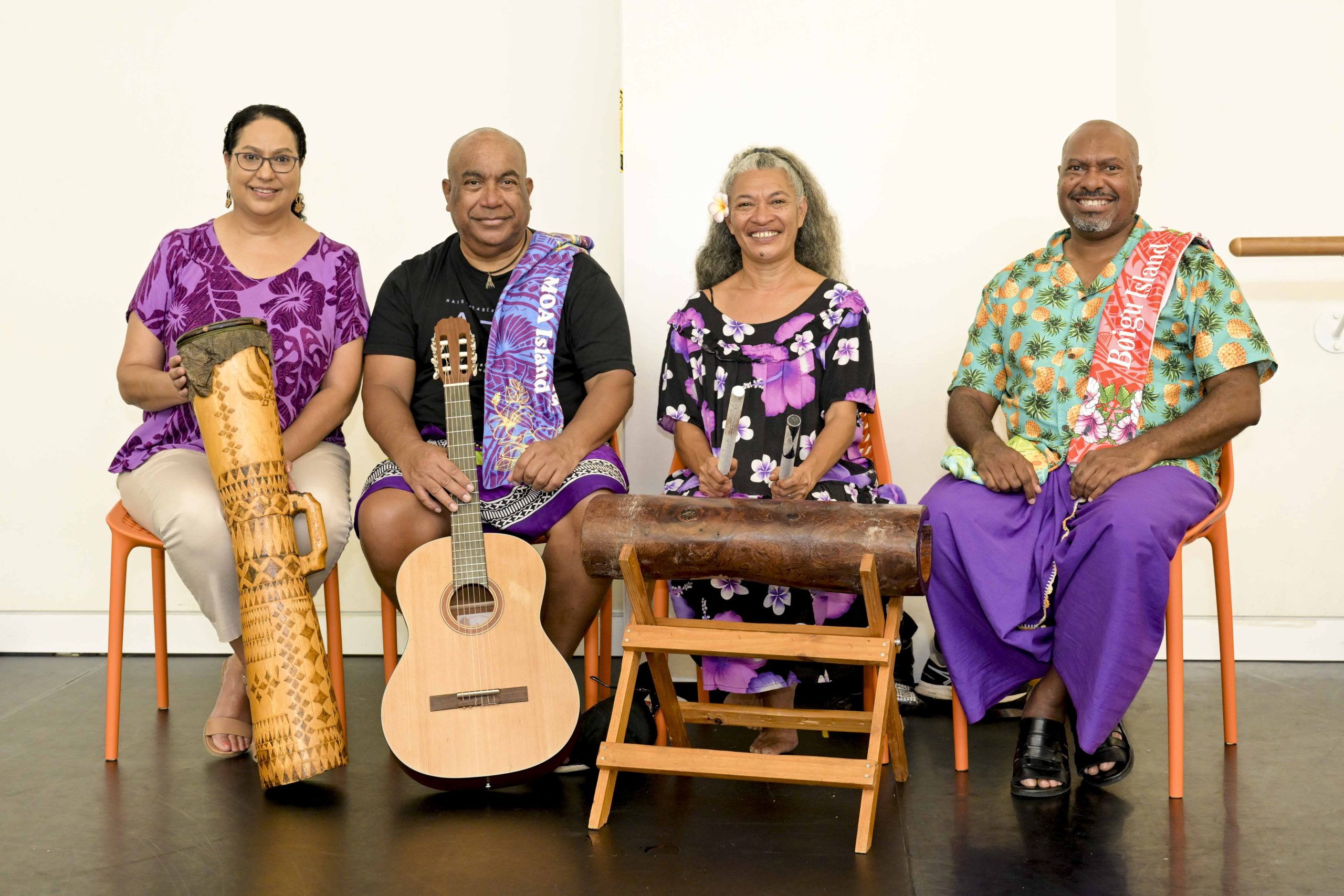
In 2024, we celebrate the eleventh year of our cultural partnership with Wug Village (St Pauls Community) on Mua Island in the Torres Strait. Our special thanks to Cultural Tutors Dujon Niue and Jeanette Fabila, who travelled to NAISDA for our onsite Cultural Residency to share Torres Strait Islander culture, songs, and dances, assisted by Helen Anu, Masepah Banu and NAISDA’s Cultural Team.
Dujon, a NAISDA graduate from 1986, spent eight years with the Aboriginal Islander Dance Theatre before founding his own company, Arpaka. More recently he has collaborated with Musica Viva, creating and touring the Torres Strait Islander cultural program Wyniss. As a NAISDA Cultural Tutor, Dujon has shared Torres Strait Islander culture for over a decade, contributing and performing in last year’s NAISDA production of ATI – a Dance Reckoning of Truth, Place, and Belonging at Carriageworks, Sydney.
Jeanette, specialising in Indigenous Contemporary Dance, is also a NAISDA graduate, a teacher, choreographer, cultural consultant, and performing artist. With over 25 years of experience, she passionately teaches audiences about her diverse heritage. Jeanette continues to develop Indigenous Contemporary Dance groups with Brisbane schools for NAIDOC celebrations.
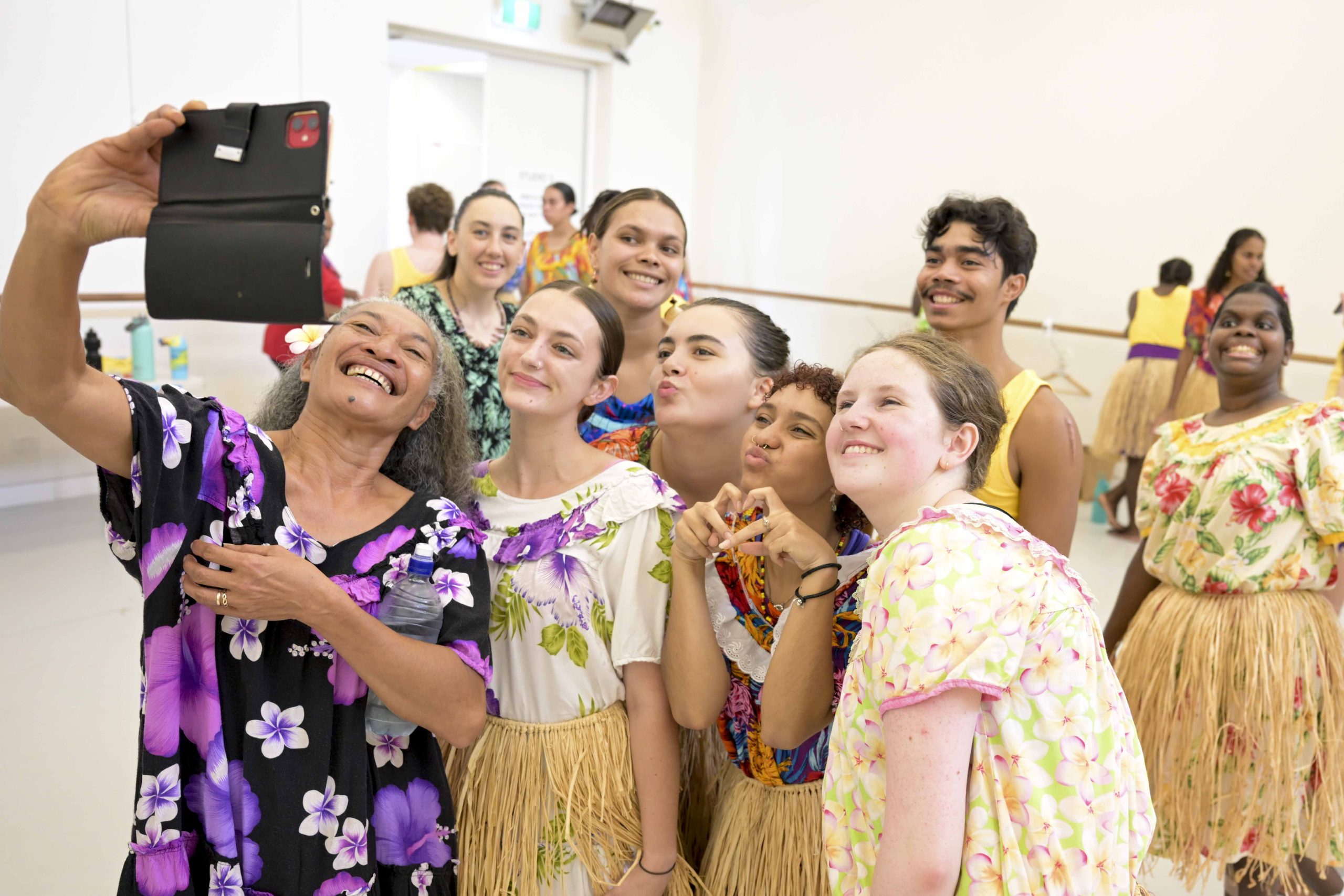
During their busy week, we caught up with them both to reflect on the importance of cultural exchange and their connections with NAISDA.
NAISDA has a strong and lasting partnership with its Cultural Tutors, and this is the eleventh year of sharing your cultural knowledge with NAISDA students Dujon. What’s the significance and importance of this cultural exchange for both of you?
Uncle Dujon: For me, it’s important to share the culture through songs and dances with the next generation.
Jeanette: I’ve been privileged to be asked by Uncle Dujon to support him with passing on knowledge from Mua Island and also give back as an alumni of NAISDA. Dujon was here in the ‘80s and then I was here in NAISDA’s ‘90s era. So, it’s nice coming back to build and continue that spirit.
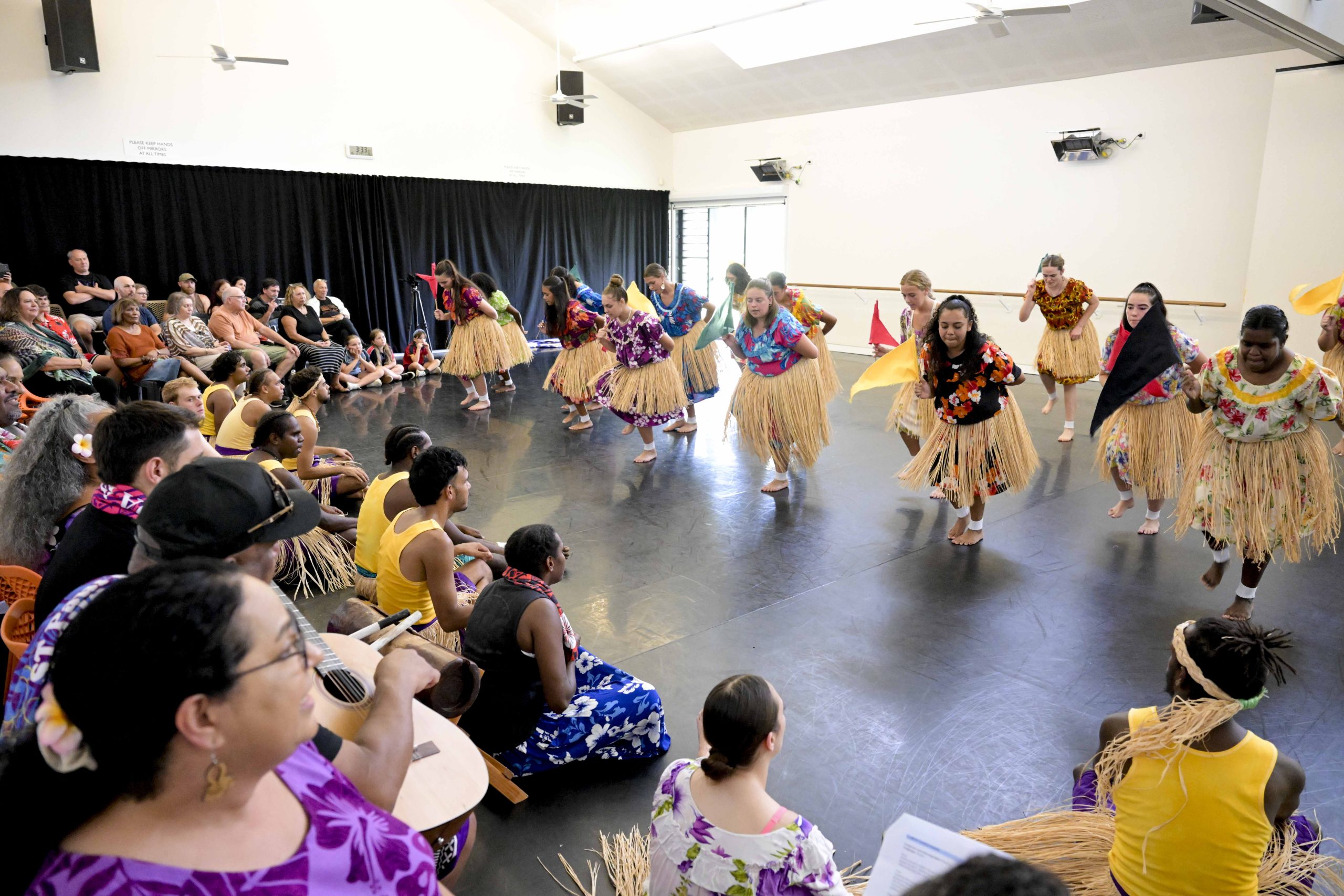
Tell us about your roles as Cultural Tutors. What does this mean?
Uncle Dujon: My role as a Cultural Tutor is to teach NAISDA students the cultural songs and dances, which are composed from Mua Island. We also teach them about the costumes and the props, and how to make them.
We also teach them how to sing the songs, because they’re all in my language from the Torres Strait Islands. These are the roles that I play as a Cultural Tutor.
Jeanette: I’m supporting Uncle Dujon and teaching the students to respect Mua Island and what he’s bringing into the College, and also how important it is for the next generation to carry culture on. Also to respect the protocol and respect everything that they’re learning from Uncle Dujon.
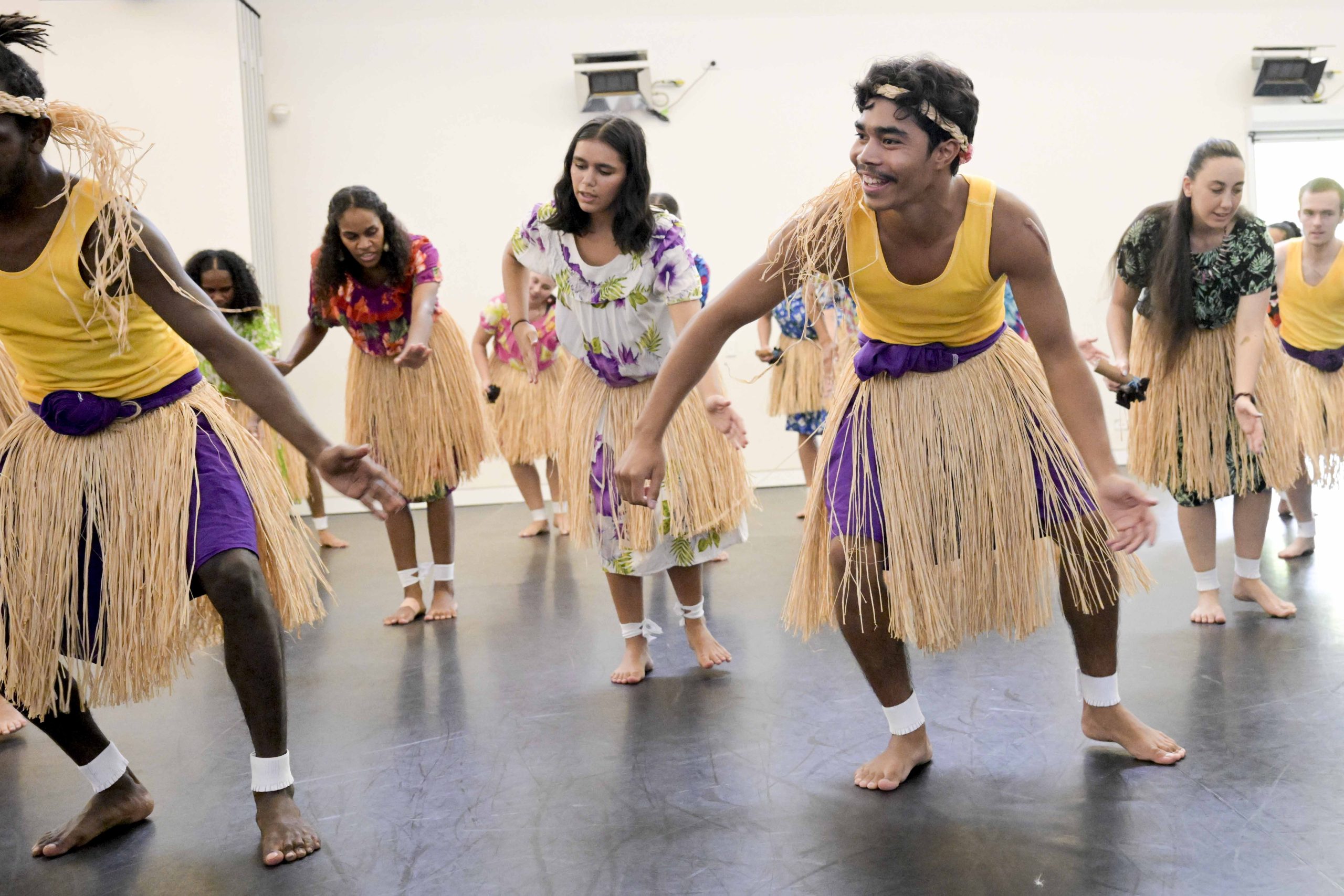
Can you tell us a little bit about the Cultural Residency to Mua Island later in the year, as well as continuing to learn and practice Song and Dance what else will students be doing?
Uncle Dujon: NAISDA students will fly up from Darkinjung Land later in August to Mua Island. For the activities, we do things like canoeing and checking the safety of the canoes, and shell beading, where they will make their own necklace or earrings.
They also do sewing, walking on the reef and fishing – from the wharf and from the boat. There’s also gardening too.
They also do storytelling with the Elders, with stories from Mua Island. Basically, loads of stuff and lots of activities.
Jeanette: Lots of activities in one week!
What advice would you offer a young First Nations artist starting their journey into dance and the creative industries?
Jeanette: My advice is for them to look, listen and learn. Learn to respect everything they’ve been passed on by Uncle Dujon during this Cultural Residency and everything they learn from Mua Island. It’s a special thing that they’ll carry with them for the rest of their life. Also to respect other nations around Australia and the world.
Uncle Dujon: I really want them to come to NAISDA and then go back to their community and start their own dance school or whatever – it could be anything. Come back and share what you’ve learnt with your own community. This is really important.
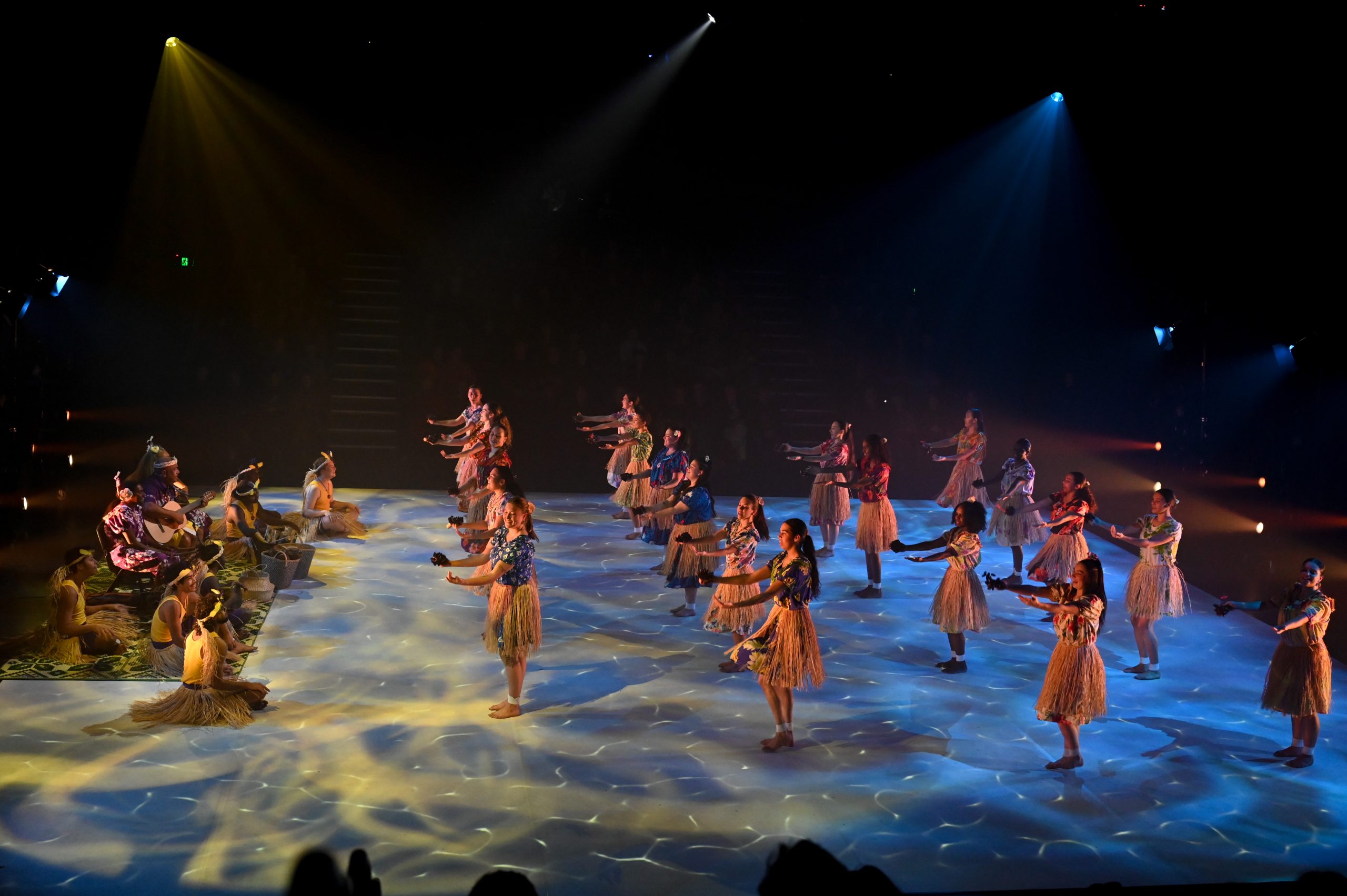
We look forward to continuing our learning and connection with Uncle Dujon, Jeanette and the Community of Wug Village in August.
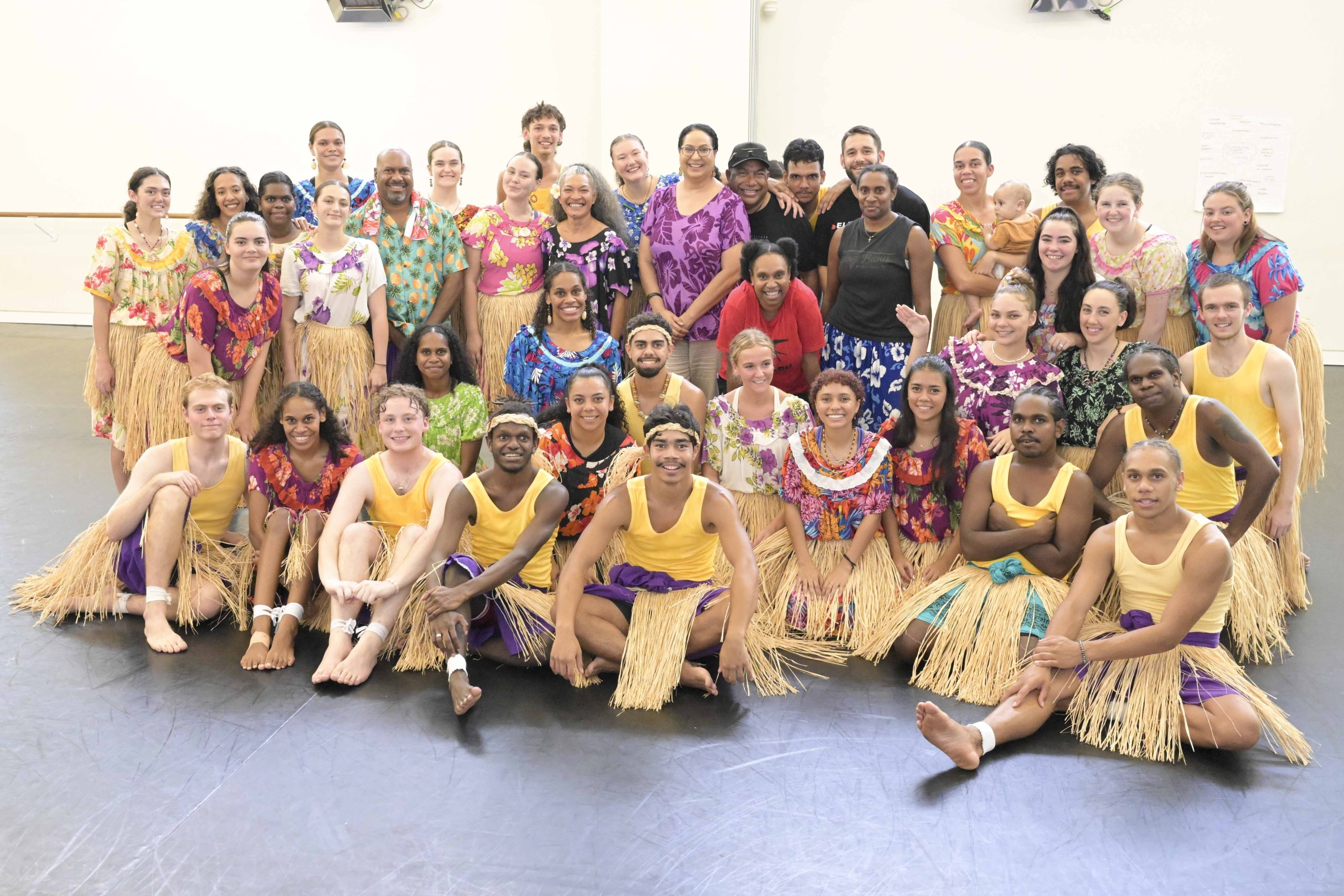
Culture is the foundation of NAISDA’s deadly learning model. Our curriculum is embedded and connected to Aboriginal and Torres Strait Islander lands, culture and people. It is the only one of its kind in Australia, exclusively developed, written and delivered by NAISDA. Further information is available in our Course Information Pack.
If you, or someone you know, would like to audition to join our 2025 cohort, register your interest here and we’ll be in touch.